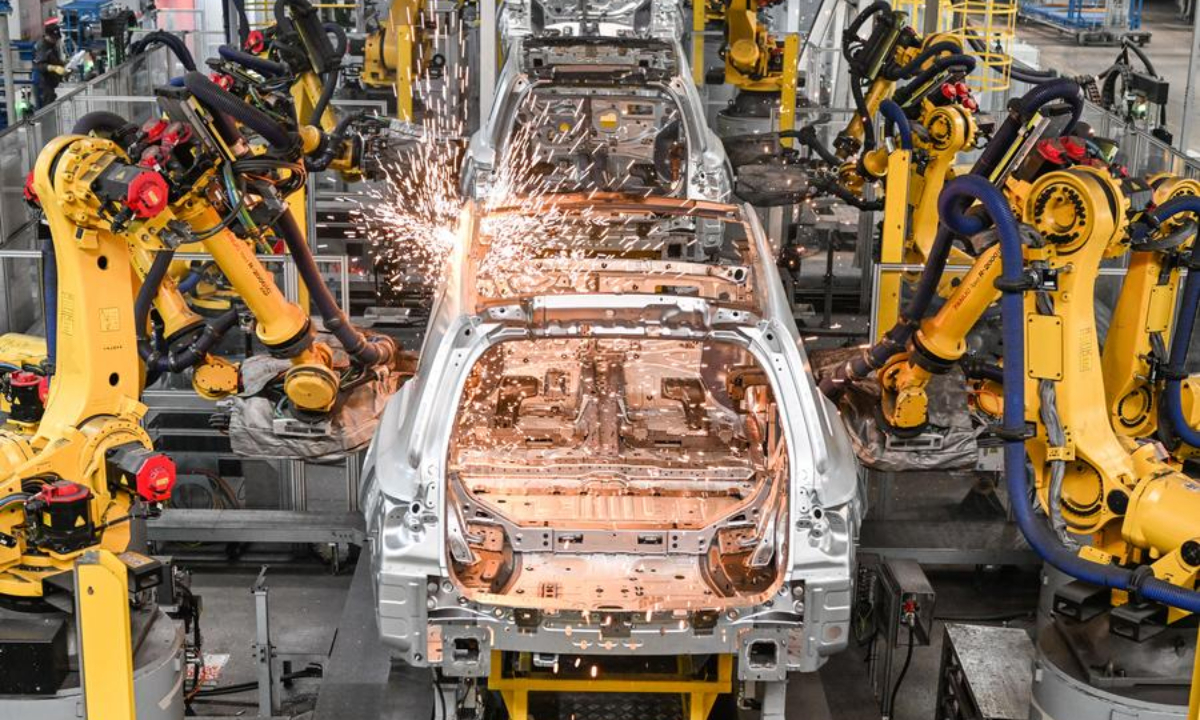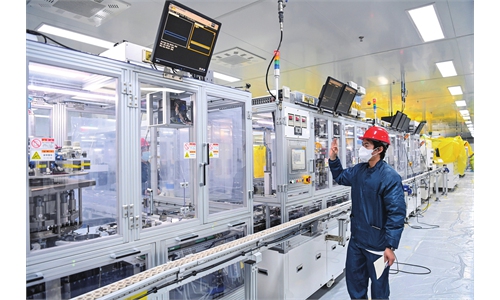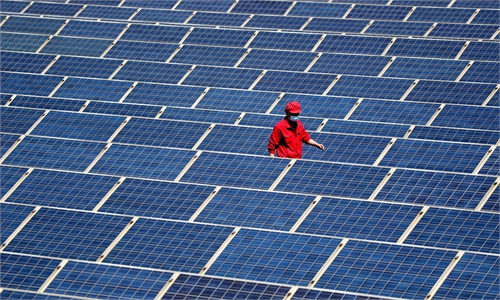US hyping of Chinese new energy ‘overcapacity’ does not accord with facts: Foreign Ministry

Robots weld bodyshells of cars at a workshop of Chinese electric vehicle (EV) maker Li Auto Inc. in Changzhou, east China's Jiangsu Province, Jan 10, 2024. Photo:Xinhua
The US government's concoction and hyping of China's new energy "overcapacity" completely deviates from the facts and economic rules, a Chinese Foreign Ministry spokesperson said on Wednesday, blasting the latest US efforts to make a protectionism alliance at G7 to bar Chinese new energy products.
China has reiterated that the development of the country's new energy industry is the result of its long-term technological accumulation, opening up and full market competition rather than rely on industrial subsidy, Wang Wenbin, the spokesperson, said at a regular press conference, noting that the country's new energy development conforms to market rules and the principle of fair competition.
China's new energy industrial capacity represents advanced capacity that is urgently needed in global green transition rather than "overcapacity," Wang said.
The US' hyping of China's "overcapacity" in new energy manufacturing completely deviates from the facts and common economic rules, and its nature is protectionism, Wang noted.
The remarks came as US Treasury Secretary Janet Yellen reportedly pushed for joint G7 response to China's "overcapacity," Reuters reported on Tuesday.
Yellen alleged that "China's excess industrial capacity threatened both American and European firms as well as the industrial development of emerging market countries," according to Reuters.
According to the logic of Yellen and other American officials, the US exports a large number of soybeans, aircraft and natural gas every year. "Doesn't the US have the problem of "overcapacity'? Should the G7 finance ministers' meeting focus on solving the problem of the US' overcapacity?" Wang asked.
Using the excuse of the concocted "overcapacity", the US attempts to force G7 members to bar Chinese new energy products. In reality, the US aims to make a protectionism alliance, which is against the trend of opening-up and win-win cooperation, and will harm the interests of related countries' consumers and disrupt global green transition, Wang said.
The "double standards" in developing green economy, displayed by American official, will not profit either side and are highly counterproductive, Wang said, noting that protectionism will not help solve climate change.
The US cannot ask China to shoulder greater responsibility in handling climate change while blocking Chinese green products to benefit the world by welding the "big stick" of protectionism, Wang noted.
China is willing to deepen new energy industrial and supply chain construction with every country so as to boost technological innovations and industry development, Wang said, while urging all countries to stick to opening-up and cooperation while refusing protectionism.
Global Times


